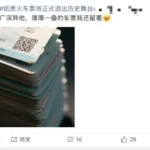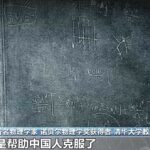The 19th issue of “Qiushi” magazine published on October 1 will feature an important article by Xi Jinping titled “The Formation and Development of the Chinese National Community Represents the People’s Aspirations, the Trend of Our Times, and Historical Inevitability.” This article is part of Xi Jinping’s speech delivered at the National Conference on Ethnic Unity and Progress on September 27, 2024.
The article emphasizes that the Chinese nation is a great nation with a civilization history of over five thousand years. All ethnic groups in China have jointly developed the country’s vast territory, jointly created a unified multi-ethnic nation, jointly written the splendid history of China, jointly created the brilliant Chinese culture, and jointly cultivated the great national spirit.
The article points out that the formation and development of the Chinese national community represents the people’s aspirations, the trend of our times, and historical inevitability. The bloodline integration among different ethnic groups forms the historical foundation for the formation and development of the Chinese national community. The Chinese nation is the result of long-term interactions, exchanges, and integration among various ethnic groups. Only through continuous unity, integration, and conscious integration into the larger Chinese national family can different ethnic groups achieve a brighter future. Shared beliefs among different ethnic groups serve as the internal driving force for creating a unified multi-ethnic nation. Our unified multi-ethnic country was jointly created by all ethnic groups and must be jointly maintained, consolidated, and developed by them. Cultural connections among different ethnic groups form the cultural genes that shape the diverse yet integrated civilization pattern of the Chinese nation. The splendid Chinese culture was jointly created by all ethnic groups. To achieve new glories in socialist culture, we must continuously strengthen identification with Chinese culture and enhance mutual learning and integration among different ethnic cultures. Economic interdependence among different ethnic groups represents a powerful force for building a unified economic entity of the Chinese nation. Only by continuously integrating into the overall national development pattern and strengthening economic exchanges and cooperation can different regions and ethnic groups better promote national economic prosperity and achieve their own economic development. Emotional bonds among different ethnic groups form the strong ties that make the Chinese nation one family. People of all ethnic groups should cherish, continuously consolidate, and develop socialist ethnic relations characterized by equality, unity, mutual assistance, and harmony, constantly strengthening the popular foundation for building the Chinese national community.
The article emphasizes that the great motherland and great nation nurtured by over five thousand years of Chinese civilization will always be the deepest and most enduring emotional attachment for all Chinese people. On this vast, beautiful, and fertile land, people of all ethnic groups share one common homeland – China; share one common identity – the Chinese nation; share one common name – Chinese; and share one common dream – realizing the great rejuvenation of the Chinese nation.
Qiushi magazine
Qiushi magazine is the flagship theoretical journal of the Central Committee of the Communist Party of China. It was first published in 1988 and serves as a key platform for explaining and promoting Party theories, policies, and ideological work. The publication plays a significant role in guiding Party members and the public on major political and theoretical issues.
Chinese National Community
The Chinese National Community refers to the official concept of a unified multi-ethnic state comprising 56 recognized ethnic groups, with the Han majority as the core. This framework, rooted in policies developed since the mid-20th century, emphasizes ethnic harmony and solidarity under a shared Chinese national identity. It promotes the integration of all ethnic groups within the People’s Republic of China while recognizing cultural diversity.
Chinese nation
“Chinese nation” refers to the collective identity and civilization of the Chinese people, which has evolved over more than 5,000 years of continuous history. It encompasses the diverse ethnic groups, traditions, and cultural heritage that have developed within China’s territory. This concept reflects the historical unification and shared cultural roots of groups like the Han majority and 55 other officially recognized ethnic minorities.
National Conference on Ethnic Unity and Progress
The National Conference on Ethnic Unity and Progress is a major political initiative in China, first convened in 2014, that aims to promote solidarity and development among the country’s 56 recognized ethnic groups. It serves as a platform for discussing policies to foster ethnic harmony and regional stability, reflecting the government’s ongoing efforts to manage ethnic relations. The conference reinforces the official policy of “ethnic unity and progress” as a cornerstone of national unity and social development.
Chinese culture
Chinese culture is one of the world’s oldest continuous civilizations, with a recorded history spanning over 5,000 years. It is profoundly shaped by influential philosophies like Confucianism and Taoism, which established core social values and a distinct worldview. This rich heritage is expressed through diverse traditions, including its unique writing system, artistic forms like calligraphy and porcelain, and a wide array of regional cuisines.
socialist ethnic relations
“Socialist ethnic relations” is not a specific place but a political concept describing the official policy towards ethnic groups in socialist states. It was historically characterized by the promotion of formal equality and unity among different nationalities, often under the centralized control of a single-party state. In practice, this policy aimed to manage ethnic diversity, but its outcomes regarding cultural autonomy and inter-ethnic harmony varied significantly across different countries.
great rejuvenation of the Chinese nation
“The great rejuvenation of the Chinese nation,” often called the “Chinese Dream,” is a national vision and political slogan rather than a physical place. It refers to the goal of restoring China’s status as a powerful and prosperous nation, a concept deeply rooted in overcoming the historical period of foreign encroachment and humiliation since the 19th century. This ongoing campaign, championed by the Communist Party of China, aims to achieve comprehensive national strength and global influence by the mid-21st century.
China
China is one of the world’s oldest continuous civilizations, with a recorded history spanning over four millennia marked by successive dynasties, imperial rule, and profound philosophical contributions like Confucianism. Today, it is a rapidly modernizing nation that blends its ancient heritage, visible in landmarks like the Great Wall and the Forbidden City, with its role as a major global economic and political power.




